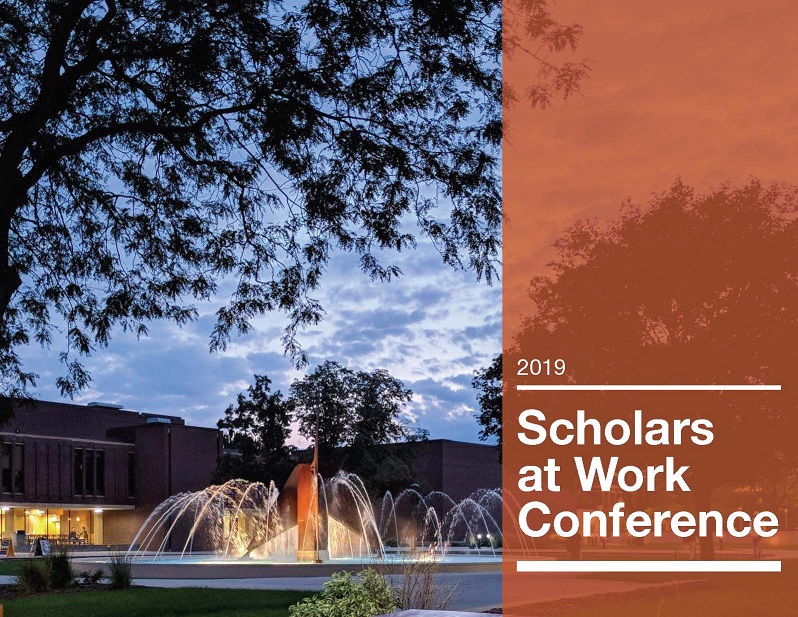Seriously Fun: Game-Based Learning Cohort
Location
Memorial Library 45
Start Date
3-29-2019
End Date
3-29-2019
Description
Interest in the use of games to teach, reinforce, or evaluate learning in higher education has been growing steadily in the past decade. Using games and game elements have been shown to increase student engagement, motivation, and autonomy, yet the concept is often surrounded by skepticism about their effectiveness or anxiety about the work involved in creating them. In August 2018, a group of twelve faculty formed the Game Based Learning Cohort to study the elements of educational games. They spent the next four months developing and play testing games for their own courses, and they are currently using the games in their Spring 2019 classes. In this plenary panel, four of the cohort participants will talk about their experiences and why they would (or would not) recommend game-based learning.
Leon Chen (Finance) Investor & Entrepreneur Simulation = Investors and entrepreneurs face off to maximize their profits in an oil well speculation. Through multiple rounds of financing, pairs negotiate debt or equity financing to maximize their expected payoff. Students practice negotiation skills and calculate risk and return on investment.
Rachelle Fuller (Recreation, Parks, and Leisure Studies) Program Resource Allocation Simulation = Players earn credits for human resources, conceptual skills, time, money, equipment to create programs for their communities. Student teams must create a strategy, deal with scarcity, adapt to changing conditions, collaborate and compete with other teams, and manage multiple projects. Resources are spent to develop programs that often generate additional resources for future projects.
Chad McCutchen (History) The Island of Kiskeya = Colonial powers Spain, France, Holland, and England vie for ownership of a Caribbean island by debating before a panel of international judges. The pirates and maroons who inhabit the island want to a chance to rule, too. Diplomatic teams present arguments based on historical facts about colonization strategies, denigrate their rivals, and downplay their own weaknesses to help the panel of judges decide the fate of Kiskeya.
Elizabeth Pluskwick (Iron Range Engineering) Li(Fe) = Students travel from Virginia to Duluth, MN, by answering questions about the 60 fundamental principles of engineering. Harder questions earn more tokens than easier questions. While similar to the commercial game Sorry!™, this game adds a gambling component in which students can wager to double their winnings if they feel confident about their knowledge.
Seriously Fun: Game-Based Learning Cohort
Memorial Library 45
Interest in the use of games to teach, reinforce, or evaluate learning in higher education has been growing steadily in the past decade. Using games and game elements have been shown to increase student engagement, motivation, and autonomy, yet the concept is often surrounded by skepticism about their effectiveness or anxiety about the work involved in creating them. In August 2018, a group of twelve faculty formed the Game Based Learning Cohort to study the elements of educational games. They spent the next four months developing and play testing games for their own courses, and they are currently using the games in their Spring 2019 classes. In this plenary panel, four of the cohort participants will talk about their experiences and why they would (or would not) recommend game-based learning.
Leon Chen (Finance) Investor & Entrepreneur Simulation = Investors and entrepreneurs face off to maximize their profits in an oil well speculation. Through multiple rounds of financing, pairs negotiate debt or equity financing to maximize their expected payoff. Students practice negotiation skills and calculate risk and return on investment.
Rachelle Fuller (Recreation, Parks, and Leisure Studies) Program Resource Allocation Simulation = Players earn credits for human resources, conceptual skills, time, money, equipment to create programs for their communities. Student teams must create a strategy, deal with scarcity, adapt to changing conditions, collaborate and compete with other teams, and manage multiple projects. Resources are spent to develop programs that often generate additional resources for future projects.
Chad McCutchen (History) The Island of Kiskeya = Colonial powers Spain, France, Holland, and England vie for ownership of a Caribbean island by debating before a panel of international judges. The pirates and maroons who inhabit the island want to a chance to rule, too. Diplomatic teams present arguments based on historical facts about colonization strategies, denigrate their rivals, and downplay their own weaknesses to help the panel of judges decide the fate of Kiskeya.
Elizabeth Pluskwick (Iron Range Engineering) Li(Fe) = Students travel from Virginia to Duluth, MN, by answering questions about the 60 fundamental principles of engineering. Harder questions earn more tokens than easier questions. While similar to the commercial game Sorry!™, this game adds a gambling component in which students can wager to double their winnings if they feel confident about their knowledge.




